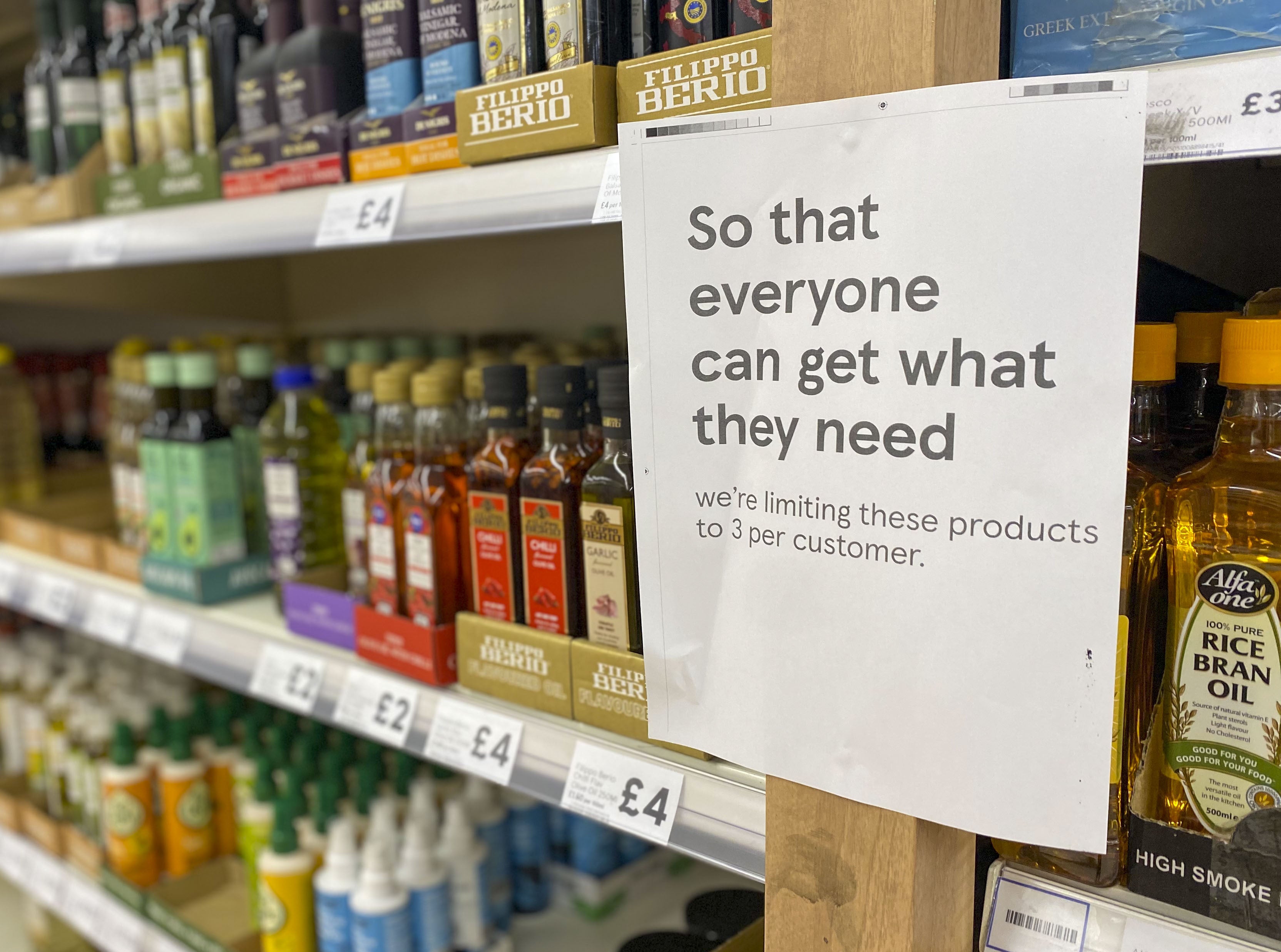Why is there a shortage of cooking oil in the UK?
Covid and Ukraine war put pressure on global supply chains

Global supply shortages and soaring costs have pushed supermarkets in the UK to introduce restrictions on the purchase of cooking oils.
Prices have been rising since the pandemic began for multiple reasons, including poor harvests in South America and Covid-related staff shortages.
There has also been steadily increasing demand from the biofuel industry.
But in recent weeks pressures on the supply of olive, sunflower and other cooking oils have increased further.
The war in Ukraine – which supplies nearly half of the world's sunflower oil — has interrupted shipments and sent cooking oil prices spiralling.
With Russia contributing 25 per cent of the world’s sunflower oil, supply lines have been upended, contributing to shortages in the UK and elsewhere.
British supermarkets as well as shops in Spain, Germany, Italy and Turkey are seeing limits introduced to prevent panic-buying, and in some cases even empty shelves.
In the UK, Tesco has limited shoppers to three cooking oil items per customer, while Morrisons and Waitrose allow the purchase of two items and Iceland one.
Fraser McKevitt, head of retail and consumer insight at Kantar, said: “Last weekend several supermarkets introduced restrictions on cooking oil purchases as concerned consumers filled up their cupboards.
"The combination of rising prices and increased demand saw the cooking oil market grow by 17 per cent over April.
“Sunflower oil, Britain's most popular choice for frying, and vegetable oil grew even faster – up by 27 per cent and 40 per cent respectively."
According to the UN Food and Agriculture Organisation, vegetable oil prices hit a record high in February and increased another 23 per cent in March.
Soybean oil, which sold for $765 (£609) per metric tonne in 2019, was averaging $1,957 per metric tonne in March, the World Bank said.
Palm oil prices were up 200 per cent and are set to go even higher with Indonesia, one of the world's top producers, set to ban cooking oil exports on Thursday to protect domestic supply.
Consumer goods giant Unilever said it has contracts for ingredients used in its food, hygiene and personal care brands – such as palm oil – for the first half of the year.
But it warned investors that its costs could rise significantly in the second half of 2022.
Cargill, a global food giant that makes vegetable oils, said its customers are changing formulas and experimenting with different kinds of oils at a higher rate than usual.
The cooking oil crisis is just the latest in a string of problems to beset the global food distribution network as a result of Russia's war.
The conflict has further fueled already high food and energy costs, hitting the poorest people hardest.
Distributors of grains such as wheat are also coming under pressure. Last year Ukraine was the sixth-largest wheat exporter globally, accounting for 10 per cent of the market, and the conflict has seen prices rise and supplies disrupted.
Additional reporting by agencies
Subscribe to Independent Premium to bookmark this article
Want to bookmark your favourite articles and stories to read or reference later? Start your Independent Premium subscription today.

Join our commenting forum
Join thought-provoking conversations, follow other Independent readers and see their replies